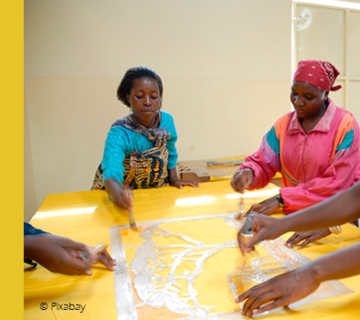Journalists, teachers, communication experts: an international workshop on the synodal path
“What Communication for Synodality?” This was the title of a webinar on 7 March live on Youtube, born after a long discussion among communication experts. A synodal path started last year with monthly meetings. Thus on the initiative of NetOne, the international network of communicators of the Focolare Movement, the idea of the webinar was developed.
During the first session of the Synod last October, Pope Francis had asked the participants to ‘fast from’ the word. “Real communication has a rhythm to be respected with a time to be silent and a time to speak,” said Bishop Brendan Leahy, a member of the Synod Assembly who joined the webinar from Limerick in Ireland. “Synodality involves asceticism, the ability to look inside ourselves and offer the ‘distilled wine”, using the right words not empty words that lead to gossip. I think the Pope is inviting us above all to imitate Mary, in her contemplation”.
“A synodal Church is essentially a Church of communion which becomes real when there is a communication of each one’s gifts,” said Msgr. Piero Coda, secretary of the International Theological Commission, who also spoke at the event. “It’s important to focus on the quality of communication: not giving opinionated answers but discovering the real questions that dwell in society so as to be able to give prophetic answers”.
Bishop Coda’s words were echoed by Thierry Bonaventura, communications manager of the General Secretariat of the Synod when he said: “Communication forms the basis of any human relationship. God is communication, He communicates Himself, He is dialogue between the Persons of the Trinity. All the issues that emerged during the first session of the Synod last October are linked to the theme of relationality. Communication permeated the Synod even if there was a preference for communicating rather than thinking about communication”.
This was followed by a speech from Argentina’s Isabel Gatti, NetOne’s international coordinator: “From the theory of communication, it is possible to offer keys to interpretation so that the philosophical and theological concepts of synodality can improve our ecclesial practices on an individual level as well as on a more social level”. “Our Church can be a family if, like Jesus and Mary, we take on the pains of suffering humanity that today has so many faces connected with communication – social polarisations, wars, social inequalities”.
An example of a synodal path is the reform of Vatican communication. “The Pope desires an outward looking Church where there is a place for everyone,” says Msgr. Lucio Adrian Ruiz, secretary of the Dicastery for Communication. “This implies communication that on the one hand embraces all the new technologies and on the other hand does not forget any of the old ones because no one must remain excluded. Then there is the experience of the digital Synod, a missionary process to go and bring Jesus’ caress, his proclamation to people who do not live in the Church’s institutions”.
Space was then given to artificial intelligence. How does it affect us in our profession as communicators? “The answer can be given in three words: knowledge, creativity and responsibility,” said Giovanni Tridente, Director of Communications at the Pontifical University of the Holy Cross linked up from Rome. “We need to know about this technological innovation in order to understand how to use it. It must be used creatively to improve our lives and it must be used responsibility, also from an ethical point of view, to make people aware and free to form their own opinions”.
Finally, the speech by Liliane Mugombozi, a journalist from the Democratic Republic of Congo: ‘When we communicate we are giving something of ourselves, our view of the world, the values we believe in, our fears, our sorrows, but also our achievements, our victories, our doubts, our hopes, our deepest questions. An act of communication can be a gift that encourages people to meet together, that creates contexts of dialogue and trust even in difficult situations, and to walk together. An Amhara (Ethiopia) proverb says that ‘when spiderwebs join together, they can even trap a lion’.
Finally, space for dialogue and questions, experiences and impressions. There was a desire to convey and experience more incisive and sincere communication. This webinar is only the beginning of a journey of synodality and communication
For info: net4synodcom@gmail.com
Lorenzo Russo


 Italiano
Italiano Español
Español Français
Français Português
Português




No comment